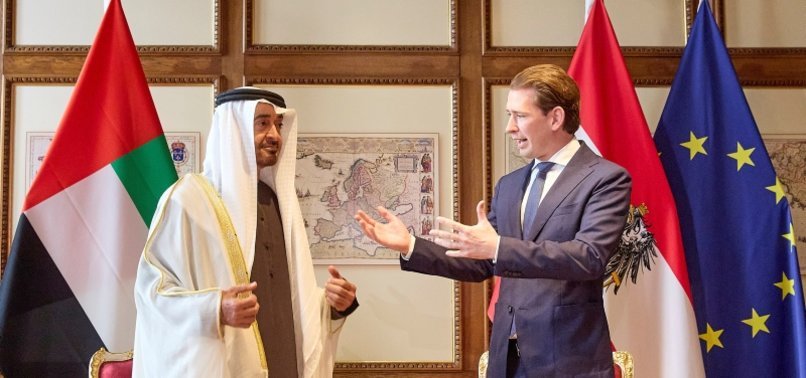The tax system in the UAE is full of surprises. From income tax and tax-free zones for businesses to property taxes and VAT – find out more.
A fun fact about the tax system in the United Arab Emirates: There is no state income tax. Despite this huge tax advantage, you shouldn’t pack your bags and think you’ll get away scot-free – not yet. We show you which taxes you have to pay as a private individual or as a company in the United Arab Emirates.
General taxes
The following is an overview of the most important general taxes for private individuals, self-employed persons and companies in Dubai.
Income tax
No income tax is levied in the UAE. Therefore, an income tax return is not required in the UAE as there is no income tax in the country.
This also applies to freelancers and self-employed persons based in the Emirates. If individuals without a company carry out regular self-employed activities with the intention of making a profit, this only has to be declared or reported from an annual income of AED 1 million. Specifically, this is known as corporate tax registration.
Capital gains tax
Taxes on capital gains such as share profits, interest on savings accounts or similar do not apply. Dividend distributions from companies are also not taxed.
Cryptocurrencies
There are currently no taxes on cryptocurrencies in Dubai and the rest of the United Arab Emirates. This means that price gains on cryptocurrencies, airdrops, minting, mining and the like continue to be completely tax-free.
Rental income
Income from renting out real estate is also still completely tax-free.

Inheritance, gift and wealth tax
There is no regulation for inheritance tax. However, if there is no will, the inheritance is regulated according to the principles of Islamic Sharia law. Otherwise, there are also no taxes on gifts. Total assets are also not taxed, as is the case in Switzerland, for example.
Exceptions
However, there are also exceptions for certain freezone companies if they carry out so-called qualified activities. They can then continue to remain tax-free, regardless of turnover. Below is another excerpt from the law.

Corporate income tax
There is now a corporate income tax for companies in the UAE. Since 2023, this affects both free zone companies and mainland companies. Specifically, the tax affects companies with an annual turnover of more than AED 3 million. Below this amount, the Small Business Relief applies until 2026 and small companies of this type are excluded from corporate tax.
For all companies with an annual turnover of more than AED 3 million, a corporate tax rate of 9% applies with an allowance of USD 100,000, i.e. around AED 375,000, which does not have to be taxed.
Double taxation
The United Arab Emirates is expanding its network of double tax treaties (DTAs) and bilateral investment treaties (BITs) to promote strategic global partnerships. The UAE has concluded approximately 193 DTAs and BITs to exempt or reduce direct and indirect taxes on investments and profits.

Tax on tourist facilities
Restaurants, hotels and resorts (among others) may charge the following taxes:
- 10% off the room rate
- Service fee (10%)
- Municipal levy (10%)
- City tax (6-10%)
- Tourism tax (6%)
- Real estate transfer tax
- Real estate transfer tax is levied on the transfer of real estate in the UAE. It varies depending on the emirate; in Dubai, for example, it is 4%. Although both the buyer and the seller bear the burden, the buyer usually pays the transfer tax.

Taxes on goods and services (VAT)
There are two taxes on goods and services in the United Arab Emirates: VAT and excise duty.
VALUE ADDED TAX
The VAT rate in the UAE is 5%. However, certain items are exempt from VAT. In 2020, the UAE exempted from VAT some personal protective equipment used during the COVID-19 pandemic, such as medical and textile masks, disposable gloves, chemical disinfectants and antiseptics. Other goods and services to which a 0% VAT rate applies are
Exports, goods and services to countries outside the GCC
International transportation
Investment-grade precious metals
Newly built residential properties
Some education and healthcare services.
Excise duty
The UAE has been introducing an excise tax since 2017. This is an indirect tax levied on goods that the government considers to be harmful to human health or the environment. The goods to which this tax applies are:
50% on carbonated drinks (with the exception of unflavored water). It can also be levied on goods that can form the basis of a carbonated drink.
100% on energy drinks containing stimulating substances such as caffeine, taurine, ginseng and guarana. It may also apply to products that may form the basis of an energy drink.
100% on tobacco and tobacco products, including all items listed in Schedule 24 of the GCC Common Customs Tariff.
Refund of value added tax
Tourists, emigrants and residents pay VAT at the point of sale. Since November 2018, eligible tourists have been able to apply for refunds for goods purchased with VAT. These conditions must be met to do so:
The goods must have been purchased from a retailer that participates in the tax refund scheme for tourists.
The goods are not excluded from the refund scheme of the Federal Tax Authority.
You must intend to leave the UAE with the purchases within 90 days of delivery.
You must export the goods from the UAE within three months of delivery.
The process and the purchase and export of goods must be carried out in accordance with the requirements and procedures laid down by the Federal Tax Authority.
Tourists can receive their refunds via a special device that can be found at airports, seaports and border ports. The devices allow consumers to electronically submit the tax invoices for their purchases at the points of sale registered in the refund system together with copies of their passport and credit card.

The tax system for foreigners
There is no income tax in the UAE for those who work in the UAE, regardless of their residency status. However, those who are not tax resident in the UAE may still have to pay income tax depending on the tax laws of their country of residence.
The UAE has concluded double taxation agreements with around 137 countries, including:
Algeria, Armenia, Azerbaijan, Belgium, Bosnia and Herzegovina, Bulgaria, Canada, China, Czech Republic, Egypt, Estonia, Finland, France, Georgia, Germany, India, Indonesia, Ireland, Italy, Kazakhstan, Republic of Korea, Latvia, Lebanon, Luxembourg, Malaysia, Malta, Mauritius, Montenegro, Morocco, Czech Republic and Belarus, Montenegro, Morocco, Mozambique, New Zealand, Netherlands, Pakistan, Panama, Philippines, Poland, Portugal, Romania, Serbia, Seychelles, Singapore, Spain, Sri Lanka, Sudan, Switzerland, Syria, Tajikistan, Thailand, Tunisia, Turkey, Turkmenistan, Ukraine, Uzbekistan, Venezuela, Vietnam and Yemen.
Further details on these agreements can be found on the website of the Ministry of Finance.
Residents of the UAE are not subject to taxes on international pension plans.
The UAE has signed up to the Common Reporting Standard (CRS), the global standard for the automatic exchange of information (AEOI) system. The CRS is a legal standard that enables countries to exchange tax data between participants. This can be useful, for example, in the investigation of tax evasion.
Taxes on real estate and assets
The following tax rates apply to real estate and assets .
Transfer tax
A transfer tax is levied on the transfer of real estate in the UAE. This varies depending on the emirate (in Dubai, for example, it is 4%). Although both the buyer and the seller bear the burden, the buyer usually pays the transfer tax.
Municipal/rental tax
As already mentioned, taxes on rented properties vary between the Emirates.
Residential tenants in Dubai pay 5% of their annual rent as rental tax, while commercial tenants are charged 10%. In Abu Dhabi, UAE citizens do not have to pay taxes on their properties, but their foreign fellow citizens pay 3%. In Sharjah, too, all tenants pay a rental tax of 2%.
Import and export taxes in the UAE
Just as in the EU, there are customs duties and taxes to be paid on the import of goods and merchandise in the UAE and accordingly also in Dubai.
Customs duties
Customs duties of 5% of the CIF (Cost, Insurance, and Freight) value are levied on most goods. Some categories are exempt from customs duties. Alcohol is subject to a duty rate of 50%, while tobacco products are subject to a duty rate of 100%.
In addition, a value added tax of 5% is levied on gasoline.

Tax advice in the UAE
Since there is no income tax in the UAE, many people do not need to hire a tax advisor – there is no need to fill out an income tax form.
For larger companies, however, it is important to obtain independent financial advice on the company’s tax liability. We are happy to help you remain tax compliant in Dubai.
Summary
Dubai is often referred to internationally as a tax haven and in practice this is true. There are of course some taxes in detail, but the most important taxes for private individuals, for example on income, capital gains, dividends or rental income, are still 0%. Companies have to register for corporate tax in any case, but only pay it if their annual turnover exceeds AED 3 million. There is then a tax-free allowance of USD 100,000, i.e. AED 375,000, above which 9% is payable.











